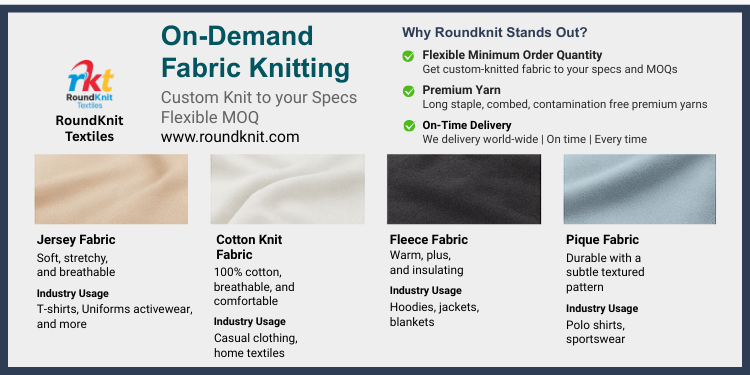Lower Fabric Costs, Higher Margins: Pakistan’s Edge for U.S. Apparel
In today’s competitive global market, textile manufacturers—particularly those producing apparel, uniforms, workwear, and garments—face mounting challenges. The rising costs of raw materials, labor, and operations put immense pressure on companies trying to maintain a balance between affordability and uncompromised quality. For many, the default response has been cost-cutting, but this often risks compromising the very quality that defines their brand.
Against this backdrop, sourcing fabric from Pakistan emerges as a strategic and sustainable solution for U.S. companies striving to navigate these hurdles.
Pakistan: A Time-Tested Textile Powerhouse
Pakistan has long been recognized worldwide for its textile expertise. The country produces high-quality yarns and fabrics favored by many leading international brands. The secret lies in Pakistan’s use of premium yarns—such as U.S. and Australian combed cotton featuring long-staple, contamination-free fibers—which translate into durable, lint-resistant, and pilling-resistant fabrics.
This well-established production base allows manufacturers to access superior knitting and fabric manufacturing capabilities, making Pakistan an ideal partner for U.S. brands seeking quality and consistency.
Breaking Down MOQ Barriers with Flexible Solutions
One of the biggest challenges U.S. apparel and uniform manufacturers, especially small and mid-sized businesses, face when sourcing internationally is high minimum order quantities (MOQs). These often lead to excess stock, increased storage costs, and hefty upfront investments.
Fortunately, companies like RoundKnit Textiles (www.roundknit.com), based in Lahore, Pakistan, are redefining this landscape by offering flexible MOQs tailored to each project’s needs. This approach empowers medium-sized brands and promotional apparel manufacturers to order exactly the fabric volume required without sacrificing quality, freeing them from the burden of bulk purchasing.
Cost Effectiveness Beyond Borders
A common misconception is that importing fabric from overseas, especially Pakistan, will be more expensive than sourcing locally. However, currency conversion rates, coupled with competitive pricing strategies, often make Pakistani fabrics a more cost-effective choice.
For instance, blended fabrics such as poly-cotton start at highly competitive price points, roughly between $2.45 – $2.80 per yard. Fabric options extend across 100% cotton, 100% polyester, blends, fleece, jersey, pique, and Lycra, catering to diverse production needs.
By partnering with manufacturers like RoundKnit Textiles (www.roundknit.com), U.S. firms gain access to premium fabrics crafted from superior yarns—like combed U.S. or Australian cotton—at prices that enhance their bottom line without compromising on quality.
A Competitive Advantage for U.S. Manufacturers
Sourcing from Pakistan offers U.S. apparel and uniform companies multiple strategic advantages:
- Lower costs without compromising fabric quality.
- Flexible MOQs align orders perfectly with business needs.
- Access to high-grade fabrics built to international durability and performance standards.
- Integration into a global textile ecosystem renowned for reliability and excellence.
Companies that embrace these benefits can confidently manage costs while maintaining superior product standards that resonate with their customers.
Conclusion: Embracing Pakistan as a Strategic Fabric Partner
For U.S. apparel, uniform, and garment manufacturers striving to remain competitive in a challenging cost environment, Pakistan offers not just an alternative but a proactive solution. By working with flexible and quality-focused manufacturers such as RoundKnit Textiles (www.roundknit.com), businesses can control expenses, ensure premium fabric quality, and strengthen their market position.
This balanced approach—combining cost savings, quality assurance, and order flexibility—makes Pakistan an ideal fabric sourcing destination for the future. For U.S. brands ready to optimize their supply chain with a trusted textile partner, exploring options like RoundKnit Textiles could be the key to sustained success.
For more information or to explore tailored fabric solutions, please visit RoundKnit Textiles at www.roundknit.com and discover how they can support your next project.

